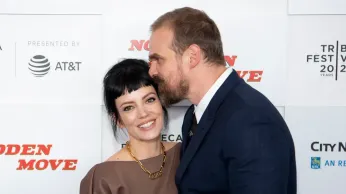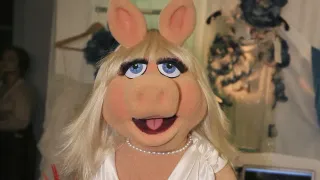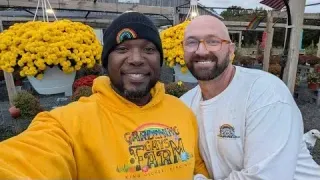
5 hours ago
Lily Allen, David Harbour, and the Butt Plug That Launched a Thousand Tweets: Why Pop’s Kinkiest Breakup Matters
READ TIME: 3 MIN.
If you’ve scrolled social media lately, you’ve seen it: Lily Allen’s new album, “West End Girl,” is everywhere. But the buzz isn’t just about catchy hooks or Allen’s return to form—it’s about the intimate, jaw-dropping lyrics that offer a window into her marriage (and breakup) with “Stranger Things” star David Harbour. And at the center of this pop-culture firestorm? A butt plug, a box of sex toys, and a level of post-relationship candor that has both titillated and united LGBTQ+ listeners in equal measure .
Allen’s lyrics (“I kicked you out, found your letters and your toys / Who knew a butt plug could make so much noise?”) aren’t just winking references—they’re rallying cries for queer and kink-positive communities who are used to seeing sexual honesty turned into scandal. Instead, Allen flips the script, making the private public and the taboo playful, and in doing so, she’s reminding us that sex, kink, and heartbreak are all part of being gloriously, messily human .
Why is this story hitting such a nerve, especially with LGBTQ+ fans? For starters, Allen’s fearless approach to sexuality and relationships—open marriage, infidelity, toybox drama—echoes conversations queer people have been having for decades. She’s singing about topics many of us grew up hearing were shameful, and instead of hiding, she’s turning them into anthems .
Historically, mainstream pop has been slow to catch up to the realities of queer sex, kink, and nontraditional relationships. But Allen’s music, like so many LGBTQ+ artists before her, centers the messy, joyful, and sometimes painful realities of loving outside the lines. Her willingness to talk about butt plugs in the same breath as heartbreak is both hilarious and quietly revolutionary—a reminder that queer and sex-positive folks have always known: Vulnerability and pleasure aren’t mutually exclusive .
Allen’s relationship with Harbour began in 2019, after meeting on the dating app Raya. They quickly became one of those couples you couldn’t help but root for—public displays of affection, red carpet appearances, and a whirlwind Vegas wedding officiated by an Elvis impersonator .
But by late 2024, rumors swirled and the split became official. Then came “West End Girl,” with Allen making clear that her art would not shy away from the warts-and-all truth. In interviews, she’s said, “the topics I write about are things that I experienced within my marriage, but that’s not to say that it’s all gospel” . The butt plug, the open marriage, the letters—these aren’t just tabloid fodder; they’re ingredients in the messy, complicated stew of modern relationships.
For queer listeners, Allen’s honesty is more than juicy gossip. It’s a kind of visibility: a straight pop star admitting her marriage was unconventional, her sex life was adventurous, and her breakup was, at times, hilarious. In an era where queer and kink communities are still fighting for dignity and representation, Allen’s willingness to let it all hang out (pun intended) feels both validating and subversive .
It would be easy to dismiss the “butt plug saga” as just another celebrity overshare, but that misses the point. In a world still policing queer bodies and pleasures, Allen’s mainstream, unapologetic embrace of sex toys and kink—especially in the context of a breakup—is a tiny act of resistance. She’s not shaming herself, her ex, or anyone else; she’s laughing, crying, and dancing through the fallout.
Queer culture has always thrived in the margins, taking what the mainstream labels “scandal” and turning it into community, art, and joy. Allen’s album, and the attendant media circus, is a reminder that pop can learn a thing or two from queer resilience. We survive heartbreak by turning it into stories, jokes, and, sometimes, chart-topping singles.
As the memes multiply and the thinkpieces pile up, maybe the best lesson here is the simplest: there’s no such thing as a “normal” relationship, and there’s no shame in what brings us pleasure—or pain. Whether you’re a pop star, a drag queen, or just someone trying to make sense of your own messy love life, Lily Allen’s latest era is an invitation to laugh, cry, and own your story—sex toys and all.






